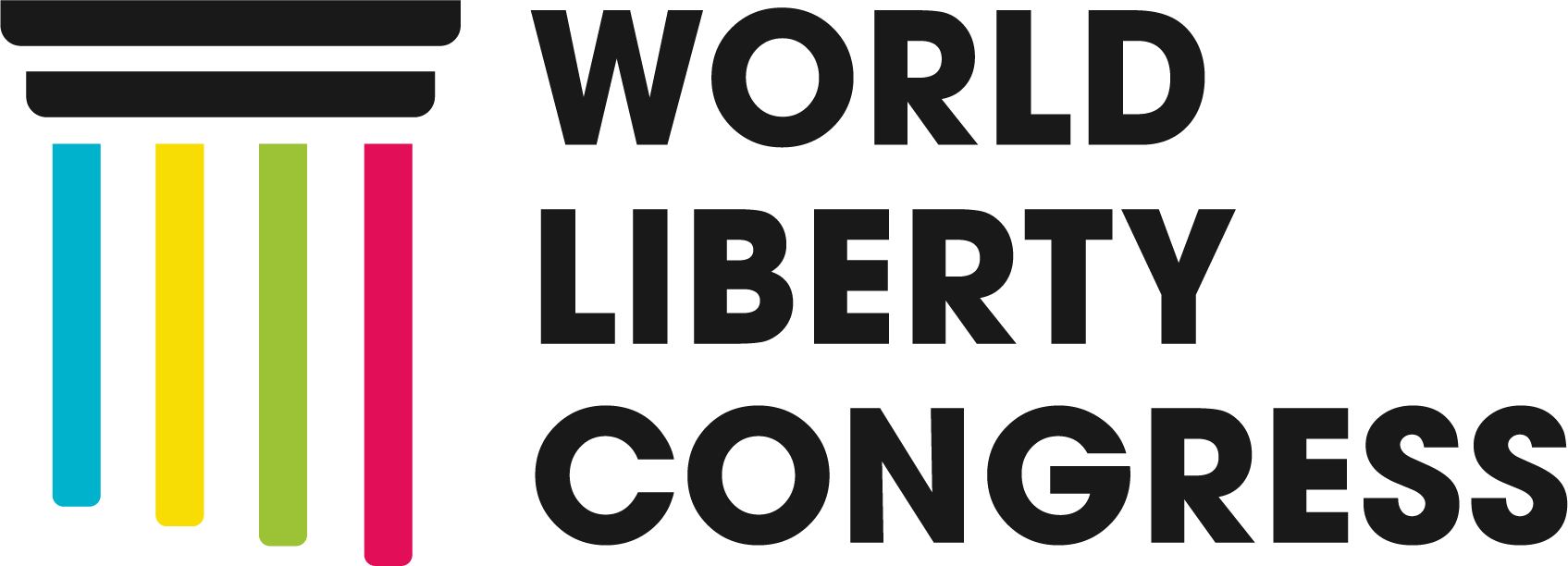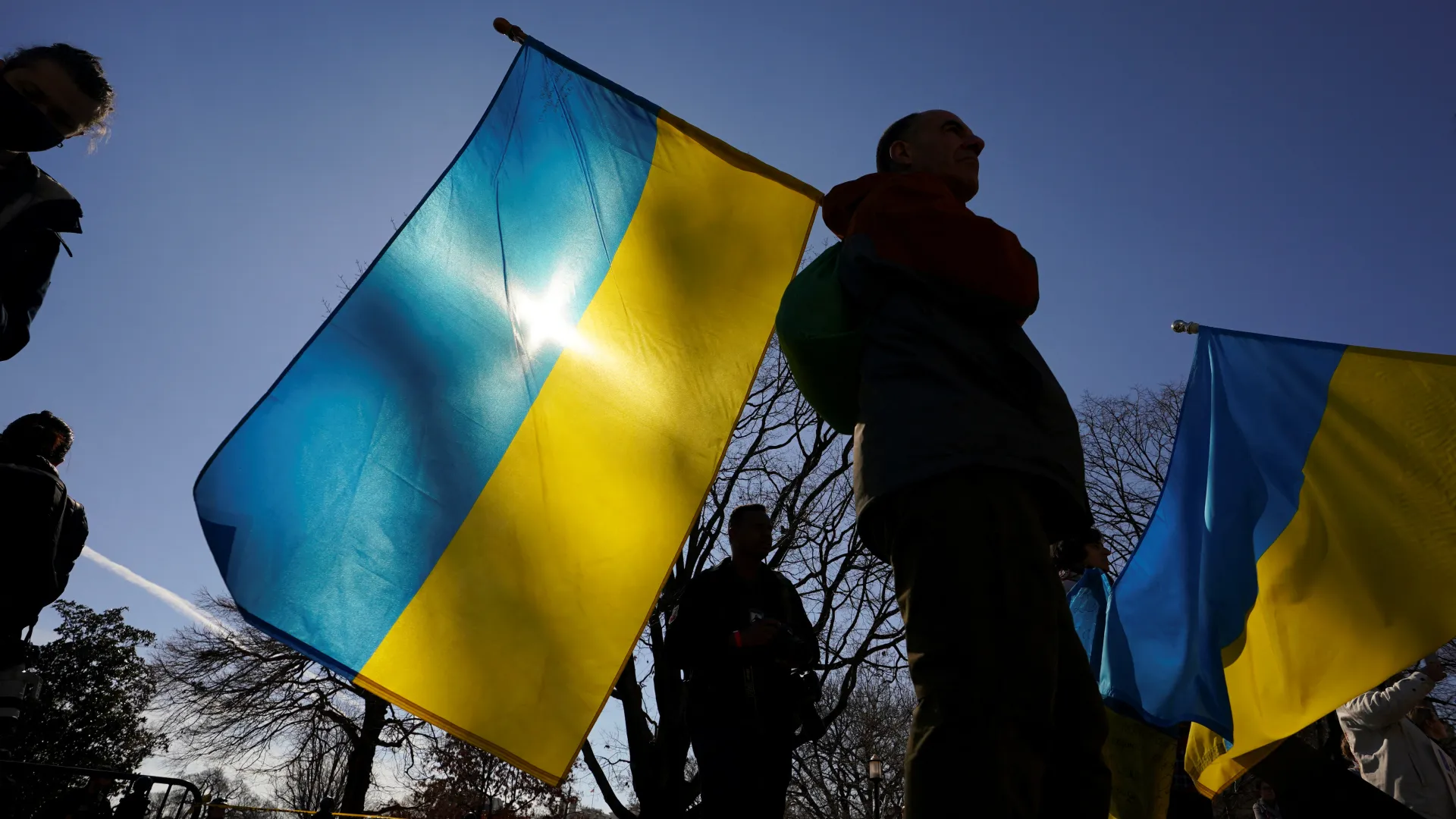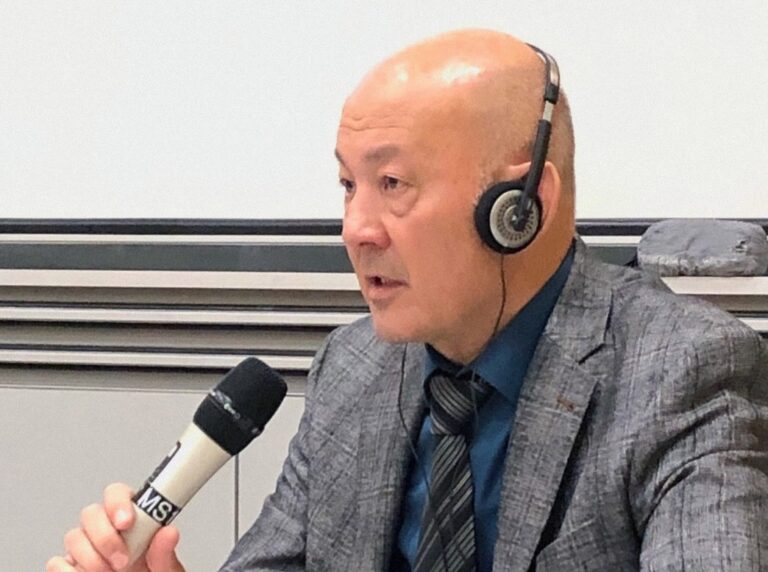By Félix Maradiaga, elected WLC Leadership Council member
Russia’s relentless missile and drone attacks across Ukraine continue to claim lives and devastate civilian infrastructure. Some estimates suggest that as of February, Ukraine had suffered between 124,500 and 131,000 casualties, including up to 17,500 killed in action. The latest barrage this week killed at least five people and caused widespread destruction, including power outages in sweltering heat. These attacks underscore a glaring truth: the West’s current level of support for Ukraine is not enough. Every missile intercepted by Western-supplied F-16s is a life potentially saved, but for every missile stopped, many more are still getting through. At this juncture, arguments against providing Ukraine with more offensive weapons are not just weak—they’re morally indefensible.
Ukraine’s Momentum and Russia’s Struggles
Recent weeks have brought a rapid and dramatic escalation in the conflict, with Ukraine demonstrating boldness and risk tolerance unseen since the war began. Ukraine’s surprise incursions into Russia’s Kursk region in early August, and subsequent advances that seized 100 Russian settlements, reflect a military that is not just fighting to survive, but to win. This boldness has exposed the Kremlin’s vulnerabilities, showing that even with 30,000 troops redirected to counter these advances, Russia is struggling to keep pace. Ukraine’s actions reveal a critical point: with the right support, it can shift the tide of this war. The urgency for the West to increase its backing has never been clearer.
The West’s Role: Beyond Military Aid
The West’s most powerful tool isn’t just military aid—it’s the strength of its own democratic values and institutions. For decades, Western nations have promoted ideals of freedom and rule of law, yet internal challenges, from political polarization to events like January 6th, have eroded this moral high ground. Russia exploits these divisions, not only through propaganda in predictable places like Latin America but alarmingly, within Europe and the United States itself. Russia’s global campaign of disinformation and propaganda inflicts enormous damage, undermining democratic processes and sowing discord even in the most resilient societies. The need for a more coordinated and effective information strategy is urgent.
Disparity in Spending and the Need for Greater Commitment
Russia is spending over 7% of its GDP on the war, while among Ukraine’s allies, only four countries—Denmark (1.83%), Estonia (1.66%), Lithuania (1.43%), and Latvia (1.35%)—are contributing more than 1% of their GDP. In stark contrast, major powers like the United Kingdom, France, and the United States contribute 0.45%, 0.16%, and 0.35% of their GDP, respectively. To truly make a difference, Ukraine needs to multiply the external aid it receives by at least a factor of 2.5. The West must recognize that its current contributions, while significant, are simply not enough to match the scale of Russia’s commitment and to turn the tide definitively in Ukraine’s favor.
A Psychological Turning Point
Military successes on the battlefield are more than strategic victories; they are psychological boosts that strengthen the resolve of Ukraine and its allies while sowing doubt and disarray within the Kremlin. However, these victories are not guaranteed without sustained support. Last year, Russia spent over $120 billion on its offensive compared to Ukraine’s $80 billion, with only half of that coming from Western sources. The disparity in spending highlights the urgency of significantly increasing support. Without this, Ukraine’s capacity to maintain its advances and achieve a decisive victory remains uncertain.
A United Western Victory Plan
What’s needed now is a collective victory plan, a coordinated strategy that brings together the full weight of Western power—military, economic, and diplomatic. This plan should not just be about supporting Ukraine; it should be about securing the stability and future of Europe. A fractured response from the West risks prolonging the conflict and undermining the very principles of sovereignty and self-determination that it claims to uphold. A Western victory plan would send a clear message: we are committed to a free Ukraine, and we will not back down.
Overcoming Reluctance: A Call to Action for the West
Changing attitudes in Western capitals is critical. The reluctance of some European powers, and even segments within the U.S., to fully commit to Ukraine’s defense is a dangerous hesitation. This isn’t just about helping a distant ally; it’s about defending our own interests. If Ukraine falls, the consequences will ripple through Europe, leading to more refugees, economic strain, and a resurgent Russia emboldened by the West’s failure to act decisively. Furthermore, allowing Russia to retain control over territories like Crimea would set a dangerous precedent, incentivizing future expansionist ambitions not only by Russia but also by other authoritarian regimes, such as China with Taiwan.
Expanding Sanctions to Putin’s Allies
Beyond military support, the West must also target the allies that prop up Putin’s war machine. The obvious targets are Belarus, Iran, and North Korea, but there are others that operate with impunity. It is unacceptable that just two and a half hours away by plane from the United States, in Managua, Nicaragua, sits the largest Russian espionage base in the Americas. Nicaragua’s dictator, Daniel Ortega, has turned the Central American nation into a satellite of Russia. Similarly, Venezuela’s Maduro, who recently rigged an election, is not just a rhetorical ally of Putin—he is actively supporting Russia’s war effort by assembling drones on Venezuelan soil destined for Russian forces. The West must broaden its sanctions to hit these enablers where it hurts, cutting off the support that allows Russia to continue its aggression.
The Strategic Possibility of Victory
The possibility of Ukrainian victory is not a distant dream but a strategically achievable outcome. Since the invasion of Crimea, skeptics have doubted Ukraine’s ability to repel Russia. Yet, Ukraine has defied the odds, reclaiming significant territories and demonstrating resilience and adaptability on the battlefield. This progress should inspire the West to increase its support, recognizing that a strong, well-supported Ukraine can achieve what once seemed impossible.
Defining Victory: Restoring Sovereignty
Victory for Ukraine means restoring its sovereignty within its 1991 borders. Anything less is a concession to aggression, a dangerous precedent that rewards brute force and undermines international law. Crimea, still under Russian control, remains a major obstacle to Ukraine’s stability and reconstruction. Allowing Russia to retain any Ukrainian territory would not only be a betrayal of Ukraine but also a signal to other authoritarian regimes that such tactics are permissible. The West must stand firm: sovereignty is non-negotiable. If Russia is allowed to retain Crimea, it would encourage further imperialistic ambitions not only in its own geopolitical sphere but potentially by other powers, such as China with Taiwan.
Tightening the Economic Noose on Russia
Despite sanctions, Russia continues to sell its gas at discounted prices, sustaining its war efforts and financing its aggression. There is still room to tighten these sanctions, expanding them to close remaining loopholes and further choke off the resources that fuel Russia’s war machine. Additionally, it is unacceptable that American components are found in some of the drones used by Russia, with parts apparently routed through India. The United States must do everything possible to ensure that its technology does not end up in Russian hands via third-party countries. This includes stricter controls and penalties for companies and nations that facilitate such transfers.
The U.S. Election: A Defining Moment
With the U.S. election approaching, American leadership has a pivotal role to play. The Biden administration’s legacy—and by extension, Vice President Harris’s political future—will be defined by its actions in Ukraine. The West has a unique opportunity to demonstrate resolve and leadership that not only supports Ukraine but reinforces the values of freedom and democracy worldwide. The decisions made now will resonate far beyond this conflict, shaping the geopolitical landscape for years to come.
The Time for Resolve is Now
The stakes in Ukraine could not be higher. This is not just about one country’s struggle for freedom; it is a battle for the principles that underpin the international order. The West knows what needs to be done. The question is whether it has the will to do it. This conflict is about more than military aid—it’s about standing up for the values that define us. The world is watching, and history will remember whether we stood firm in defense of democracy or faltered in the face of autocracy. The time to act is now, with the urgency and determination that this critical moment demands.




